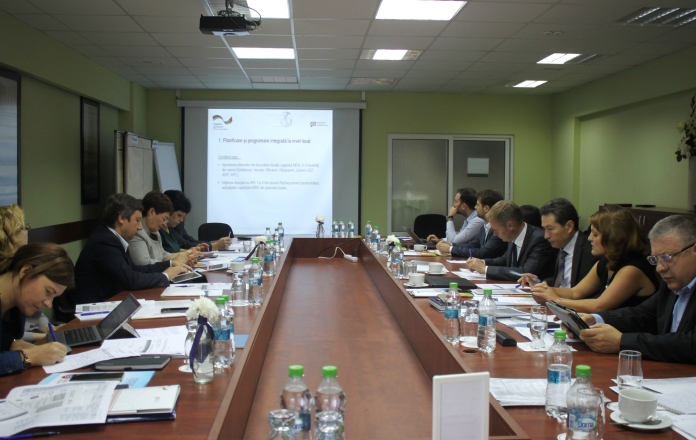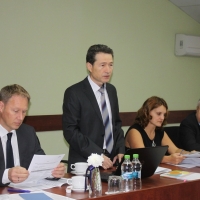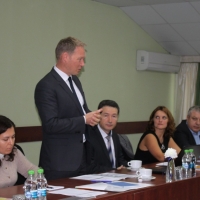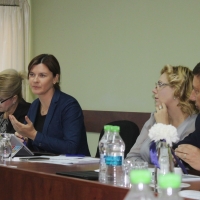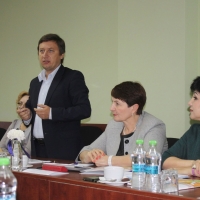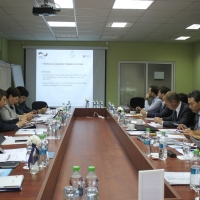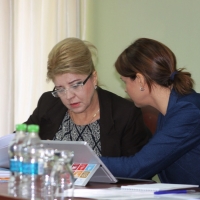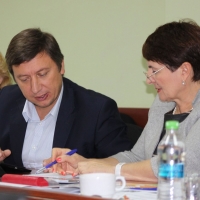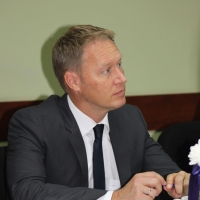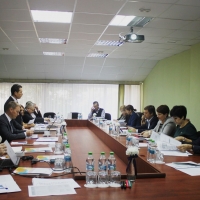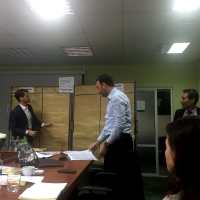The coordination and project implementation policies in the solid waste management sector were discussed in a working meeting today, 23 September, in Chisinau. The event was attended by representatives of the Ministry of Regional Development and Construction (MRDC), Ministry of Environment (MoE), Regional Development Agencies (RDA), and representatives of ‘Modernization of local public services in the Republic of Moldova’ (MLPS) project (MLPS).
Philipp Johannsen, GIZ country director and MLPS project manager mentioned that ‘…the solid waste management sector in the Republic of Moldova is with many challenges and in order to address them, an efficient collaboration at the interministerial level is necessary. That is why it is good to have all parties present at this kind of discussions”.
Inga Podoroghin, state secretary within the Ministry of Environment: ‘Only together we can take make small steps, but do great things… The policy of the Ministry of Environment in the field of solid waste management is based on the Strategy of Waste Management in the Republic of Moldova for 2013-2027 and the Law on Waste recently approved. We believe that in the future this law should be taken into consideration in the implementation of projects in this sector’.
Eduard Ungureanu, head of MRDC Directorate for Relations with Regional Development Institutions: ‘This kind of meetings are more than welcome, for the simple reason that waste management is and should be a priority field for our country. Especially, since our international partners provide advice and support in this respect, including financial one’.
Also, at the meeting the current status and ways of developing the pilot projects from Soldanesti and Floresti were discussed, as well as activities carried out in different waste management zones and details about the progress in the development of feasibility studies on environmental impact assessment.
The project ‘Modernization of local public services in the Republic of Moldova’ is implemented by the German Development Cooperation through GIZ and is financially supported by the German Ministry of Economic Cooperation and Development (BMZ), the Swedish Government, the Romanian Government, the European Union and the Swiss Agency for Development and Cooperation (SDC).


